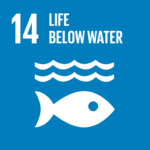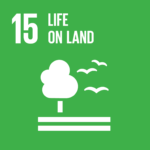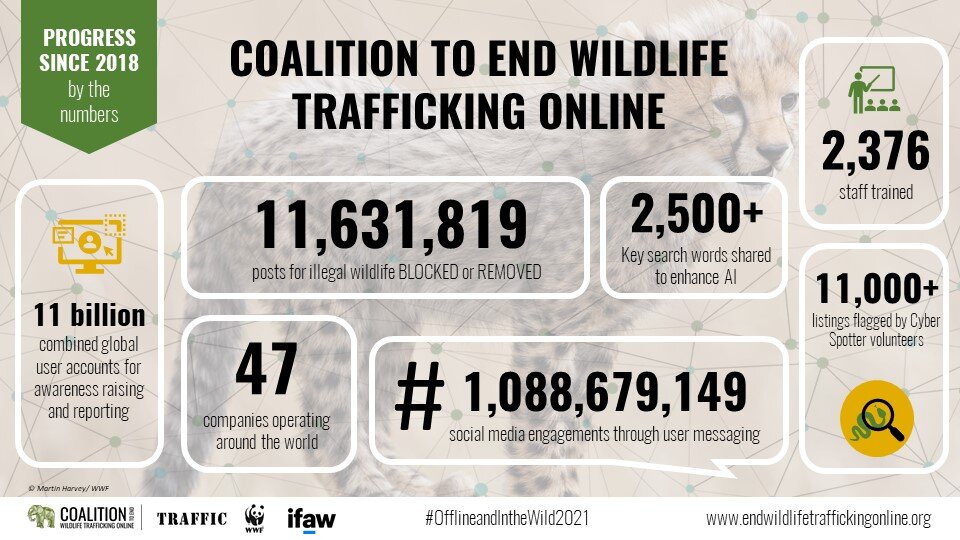Join the combat to spot and end the illegal trade of wildlife trade online via WWF Cyber Spotter Programme
The Illegal Wildlife Trade (IWT) occurs across Southeast Asia – from remote corners of Myanmar and Laos, to markets in Bangkok and Hanoi – but the Golden Triangle, where Thailand, Myanmar, Lao PDR, and China meet, is a hot-spot of the illicit trade. For the last couple of years, it has been an uphill battle against the illicit wildlife poaching industry given its estimated value of US$7-23 billion. And like everything else, wildlife trafficking has gone online due to COVID-19 pandemic.
RELEVANT SUSTAINABLE GOALS


WILDLIFE CRIME GOING DIGITAL
Recent reports on wildlife trafficking in Southeast Asia suggest that, compared to 2019, on-the-ground activity has decreased due to pandemic restrictions and weakened demand for wildlife products. However, advertisements and trade continue to proliferate on social media platforms, and there is evidence that traders may be resorting to stockpiling animal parts in anticipation of demand recovering as restrictions are eased.
Data from the fourth edition of the Counter Wildlife Trafficking Digest of the United States Agency for International Development (USAID), released on 21st May 2021, indicate that seizures of pangolin parts in China, Laos, Vietnam and Thailand dropped significantly in 2020, with 48 incidents in 2020 compared to 82 in 2019. The total volume of seizures also fell sharply to 9,765 kilograms (10.8 tons) of pangolin products from 2019’s 155,795 kg (171.7 tons). The report also found decreases in both the number and volume of seizures of tiger parts and elephant products. A total of 121 reported ivory seizures was recorded for 2020, down by 36% from 380 in 2019.
However, the trade in wildlife and wildlife products is increasingly shifting to online platforms as traffickers have found new ways to connect with potential buyers.

WWF WILDLIFE CYBER SPOTTER PROGRAMME
Shutting down global online illegal wildlife trade requires an integrated and collective international solution. But with thousands of listings found online at any given time in an ever-evolving online landscape, WWF cannot do it alone. For this reason, WWF is inviting everyone to help detect and report online listings by joining the Wildlife Cyber Spotter Programme.

The WWF Wildlife Cyber Spotter Programme empowers people to be part of the solution to stopping illegal wildlife trade – by helping to detect and report illegal online listings. Selected individuals will undergo compulsory online training to learn how to identify prohibited wildlife products and report any suspicious content they find online to WWF. WWF will then review and send accurate listings to participating members of the Coalition to End Wildlife Trafficking Online to remove the content from their platforms.
During the cyber spotting duration of 4 weeks, each Cyber Spotter is required to commit at least 2 hours per week to cyber-spot and flag a minimum number of listings per week. There are 3 cyber spotter rounds in 2022 :
- February 2022
- May 2022
- August 2022
Selected volunteers will undergo compulsory training to identify prohibited wildlife products and report any suspicious content to WWF. WWF will review the listings and work with the participating members of the Coalition to End Wildlife Trafficking Online to remove the content from their platforms.
PLEASE NOTE: You have to be 18 years old and above to take part in this programme.
The article is already updated according to WWF 2022 schedules. The article was initially published on 6th November 2021.


